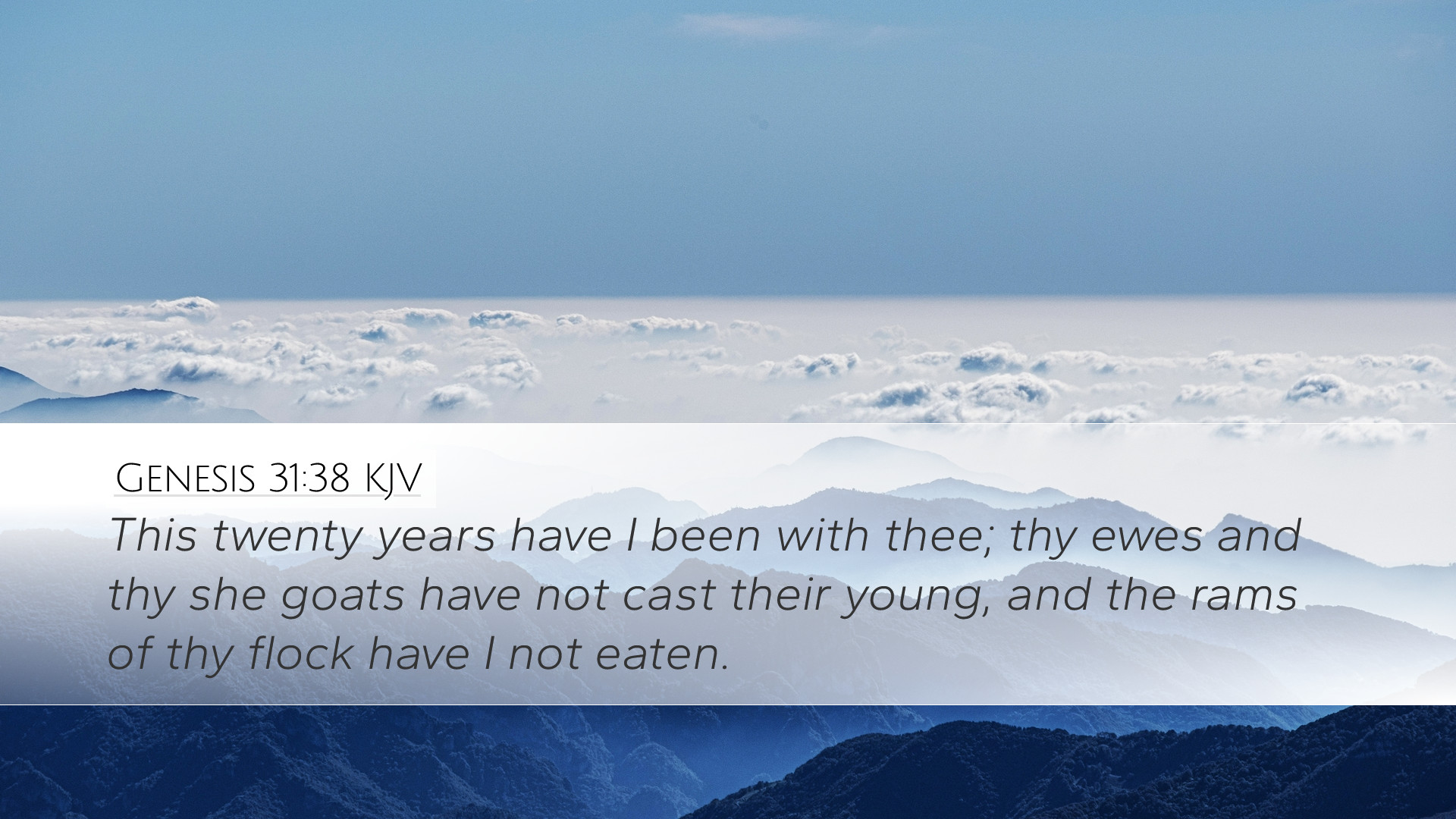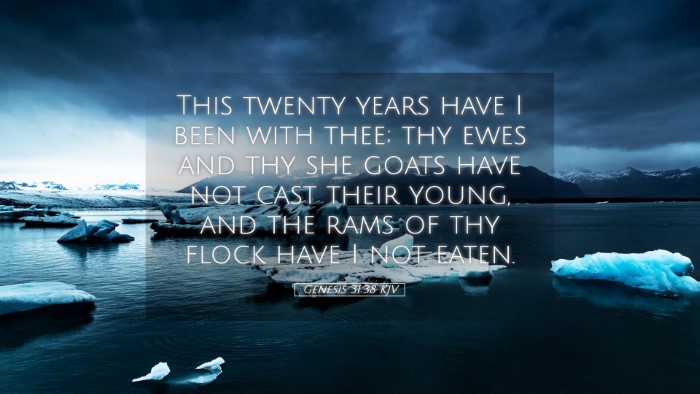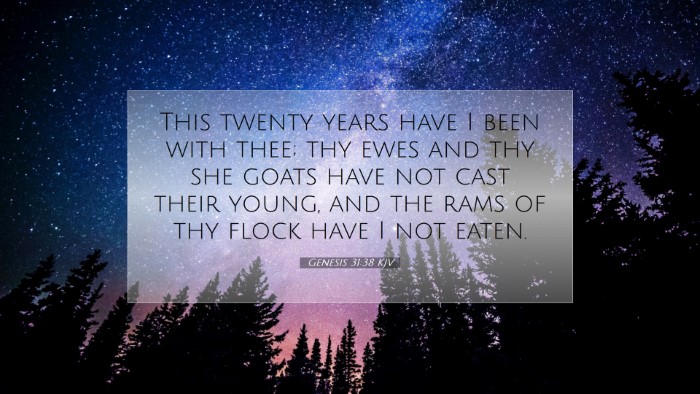Biblical Commentary on Genesis 31:38
Genesis 31:38 states: “These twenty years have I been with thee; thy ewes and thy she-goats have not cast their young, and the rams of thy flock have I not eaten.” This verse is a declaration by Jacob as he reflects on his faithful service to Laban. In the analysis of this verse, various commentaries offer profound insights that can enhance our understanding of its theological and practical implications.
Contextual Overview
Jacob's tenure with Laban, spanning twenty years, was marked by challenges, hard labor, and divine favor. Understanding the context in which Jacob speaks is crucial. He had been wronged by Laban, who altered agreements on multiple occasions. This verse serves as a testament to Jacob's integrity and commitment despite the surrounding circumstances.
Insights from Public Domain Commentaries
Matthew Henry's Commentary
Matthew Henry emphasizes the significance of integrity and faithfulness. He notes that Jacob’s statement highlights his conscientious work ethic. The fact that Laban's flocks thrived under Jacob’s care speaks to God’s providential hand upon Jacob. Henry draws attention to the moral stance Jacob takes—he refrains from consuming what is rightfully his, demonstrating a selfless attitude in ensuring the welfare of Laban's livestock. Furthermore, Henry remarks on the spiritual symbolism within this narrative, indicating that Jacob's protection of the ewes and she-goats can be seen analogously to God's care for His people.
Albert Barnes' Notes on the Bible
Albert Barnes provides a detailed exposition of the verse, noting that Jacob’s words reflect not only his profession of innocence but also serve as a warning to Laban regarding future dealings. Barnes highlights the perfect condition of the livestock as evidence of Jacob’s diligent services. He points out that Jacob’s personal sacrifices (e.g., not consuming the rams) illustrate his commitment to Laban’s interests over his own. Barnes also underlines the theological principle of stewardship exemplified in Jacob’s faithful husbandry of Laban’s flocks, urging readers to consider their responsibilities in similar positions of trust.
Adam Clarke's Commentary
Adam Clarke adds an interesting social perspective to the commentary on this verse. He illustrates the prevailing customs of the time regarding the care of livestock and emphasizes the network of obligations inherent in Jacob's relationship with Laban. Clarke suggests that Jacob’s recollection of these twenty years acts as a powerful narrative device to establish his credibility and fidelity. He notes that the specificity of the mention of 'the ewes and she-goats' is not merely accidental but serves to reiterate Jacob's unyielding commitment and the blessings he was instrumental in bringing to Laban’s household.
Theological Implications
The exhortation found in Genesis 31:38 touches on several theological themes:
- Faithfulness and Integrity: Jacob’s integrity represents a hallmark of the believer’s character. In challenging situations, believers are called to exhibit unwavering faithfulness to God, mirroring Jacob’s conduct.
- Divine Providence: The passage underscores the providential care of God over Jacob’s labor. Despite Laban's antagonism, God's blessings were evident in Jacob's service.
- Stewardship: Jacob’s diligent behavior emphasizes the importance of stewardship, encouraging those in leadership and service roles to perform their duties with excellence.
- Commitment to Relationships: The relational dynamics between Jacob and Laban serve as a framework for understanding the importance of honoring commitments and loyalties, particularly in familial and community settings.
Applications for Pastoral Ministry and Theological Study
For pastors and theologians, Genesis 31:38 offers several applications:
- Modeling Integrity: Leaders are called to model integrity in their interactions, both within the church and in the broader community. Jacob’s example encourages contemporary believers to maintain a high standard of ethical conduct.
- Encouraging Diligence: The narrative invites pastorate to encourage congregants to pursue diligence in their daily labor, recognizing it as a form of worship and service to God.
- Cultivating Trust: The assurance seen in Jacob’s work ethic can be a basis for fostering deeper trust within the church community, emphasizing the significance of dependability in relationships.
- Addressing Conflict: The dynamics of Jacob and Laban speak to the realities of conflict in relationships, and provide a template for addressing grievances while adhering to Christian principles of reconciliation.
Conclusion
Jacob's declaration in Genesis 31:38 serves not only as a testament to his personal integrity but also as a broader lesson on faithfulness, stewardship, and the blessing of God amidst trials. The insights drawn from public domain commentaries enrich our understanding and application of this text, providing fertile ground for reflection and growth in both personal and communal faith journeys. Pastors, students, and scholars alike can find in this passage powerful reminders of the divine principles that govern our actions and relationships.


